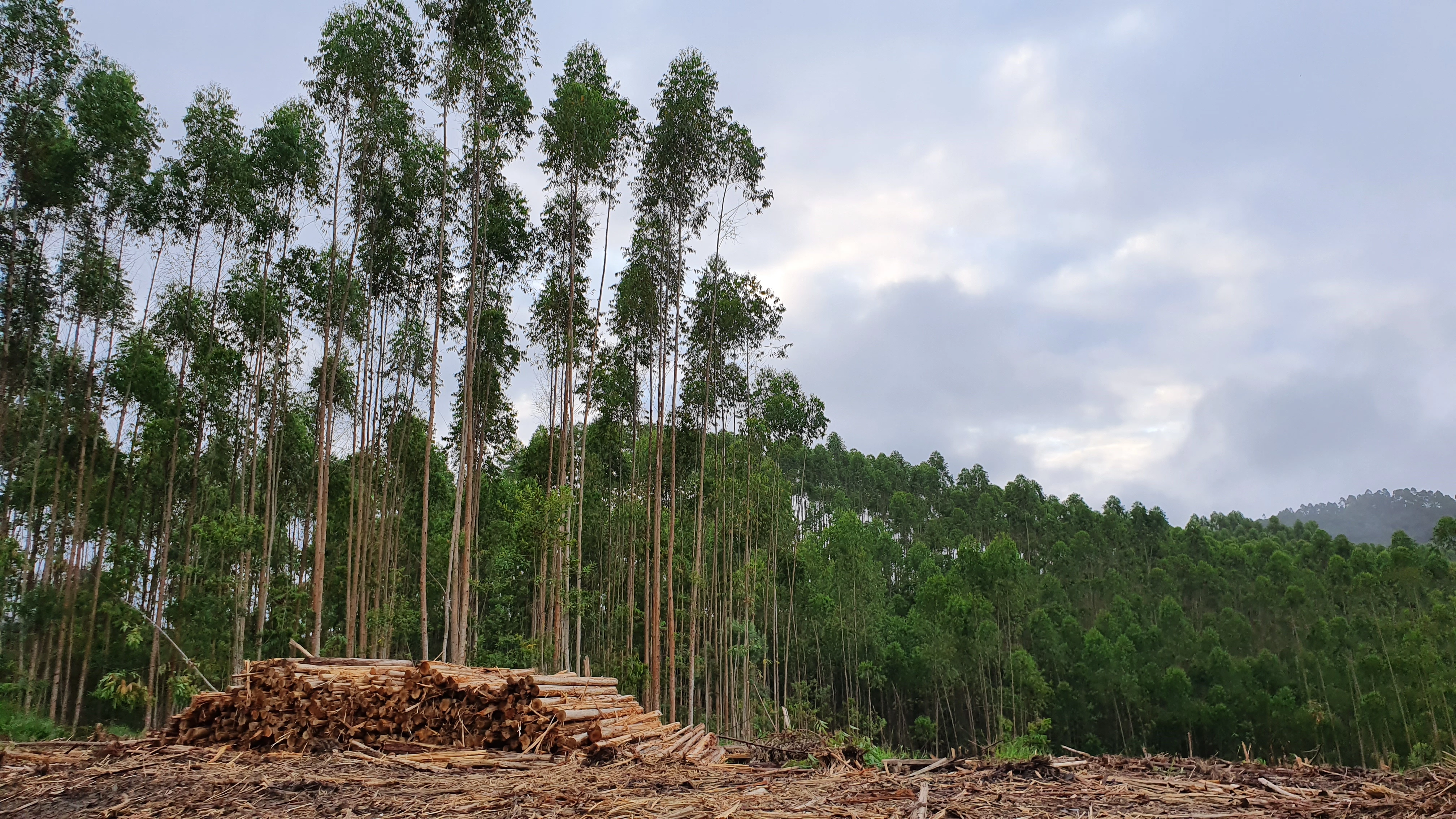Financial institutions must address deforestation and conversion risks
Deforestation worldwide is a huge problem with more financial implications than you might consider at first sight. Financial institutions are highly exposed to the impacts of deforestation, ecosystem conversion and associated human rights risks. WWF has recently presented a new report on this topic. It highlights the risks posed to financial institutions by deforestation and conversion and provides practical guidance for how private financial institutions can eliminate these risks from portfolios.
In this article we provide a short overview on our new report, 'Seeing the forest for the trees - a practical guide for financial institutions to take action against deforestation and conversion risks'. There is no pathway to net-zero without protecting and restoring nature. Feel free to contact us if you have any further questions.
Nature: the fundament of our well-being
Forests and other natural ecosystems provide services of fundamental importance to human well-being - from regulating our climate to maintaining biodiversity and supporting human health and livelihoods. But despite their importance, ecosystems are being destroyed at a rapidly accelerating rate: almost 50% of the world’s habitable land has now been lost, with half of this destruction taking place in the last 100 years. We must protect ecosystems from degradation and destruction, and live off the ‘interest’ they provide rather than eating into the ‘capital’ itself.
There are three types of risks to take into consideration:
- Physical risk results from the impacts of deforestation and conversion negatively affecting those businesses that depend on these ecosystems. This has a knock-on impact on the financial institutions that support or invest in them.
- Transition risk arises from policy measures, litigation, changing consumer preferences, and technological developments that come into force to combat the rate of deforestation and ecosystem conversion. Financial institutions not prepared for these changes are exposed to significant potential losses.
- Systemic risk refers to the larger-scale risk of the breakdown of an entire system. It is usually made up of a combination of tipping points that result in a variety of physical and transition risks.

Five steps for eliminating risk and driving change
Financial institutions are in a unique position to reverse nature loss and help restore natural systems. WWF offers detailed step-by-step guidance on eliminating risks.
- Before being able to take action effectively, a financial institution must develop a clear understanding of its risk profile.
- Develop a policy that effectively targets these risks, ensuring sufficient breadth, including a credible target and setting clear expectations for clients and investees.
- Incorporate deforestation, conversion and associated human rights factors into ongoing risk management and other decision-making processes.
- Active, early engagement is essential to support clients and investees in their journey to align their activities with the terms of the financial institution’s deforestation- and conversion-free policy.
- Regular, transparent reporting ensures recognition for the progress being made and generates pressure on other financial institutions to eliminate deforestation and conversion from their portfolios.
Nature positive finance opportunities
The opportunity is now. At this moment, financial institutions are well-placed to direct capital towards nature-positive activities that protect and restore key landscapes. Financial institutions developing ‘green financial products’ and instruments that embrace sustainability can capture these opportunities, for instance via green bounds, sustainable fund investments or sustainability-linked loans.
Peter van der Werf, Executive Director Active Ownership at Robeco which is one of the companies that integrates biodiversity more and more in their asset management: “By signing the COP26 Glasgow deforestation pledge, Robeco committed to work towards eliminating agricultural-driven deforestation from our investment portfolios by 2025. This requires not only integrating the value of biodiversity into our investment decisions but also using our leverage as investors to push companies, governments and data providers to play their part in ending native vegetation conversion.”
Want to know more?
Feel free to contact us (the form is in Dutch, but you can fill it out in English) if you want to know more. Our experts are more than happy to help you if you have any further questions for WWF aims to encourage a meaningful shift in finance by integrating nature into all financial decision making. We like to encourage leadership and best practices. Download the report and visit the dedicated website.
